G7 Calls On Iran To Cease Support For Extremist Groups
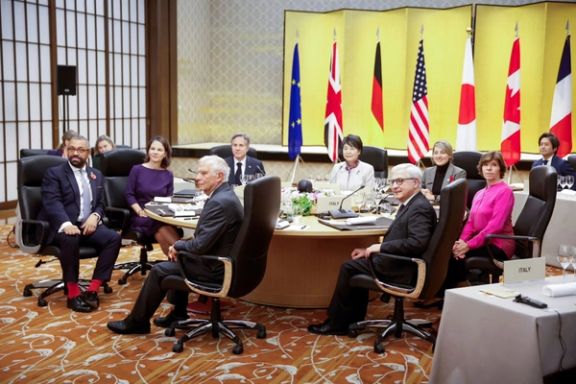
The Group of Seven (G7) nations have issued a call to Iranian authorities urging them to cease their support for Hamas and Hezbollah amid the war in Gaza.

The Group of Seven (G7) nations have issued a call to Iranian authorities urging them to cease their support for Hamas and Hezbollah amid the war in Gaza.
In a joint statement released on Wednesday following a two-day meeting in Tokyo, foreign ministers from G7 countries underlined the critical need for Iran to refrain from providing assistance to Hamas and from taking actions that could further destabilize the Middle East.
"We call on Iran to refrain from providing support for Hamas and taking further actions that destabilize the Middle East, including support for Lebanese Hezbollah and other non-state actors," the foreign ministers of the G7 countries noted, referring to the network of proxies Iran has across the Middle East.
It comes while Israel and Hamas are engaged in the worst Gaza war since the Iran-backed proxy took over control of the strip in 2007 following the Hamas invasion of Israel on October 7. In one day Hamas claimed responsibility for the slaughter of 1,400 mostly civilians and a further 241 taken hostage to Gaza. Lebanese Hezbollah, Iran's biggest regional proxy on Israel's northern border, has been carrying out increasing attacks since the war began in the worst violence since the second Lebanon war.
US Secretary of State Antony Blinken and his counterparts from Britain, Canada, France, Germany, Japan, and Italy reiterated their unwavering support for Israel's right to self-defense and the protection of its citizens in accordance with international law.
In response to the attacks on October 7, the Israeli military has conducted a sustained series of airstrikes in Gaza. The Hamas controlled health ministry in Gaza has claimed that the death toll on their side has now surpassed 10,300.
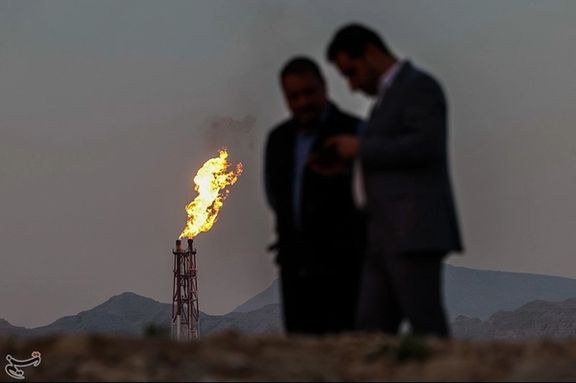
A prominent Iranian economist, highlighting corruption and mismanagement, has questioned the persisting large budget deficit despite increased oil exports.
In recent months, Iran’s oil shipments have hovered around 1.5 million barrels a day, substantially higher than in 2019-2022 period, yet government finances remain in shambles and the national currency is near its historic lows. One US dollar now buys more than 510,000 rials, or twice as much as in mid-2022, and 12 fold more than in 2018.
Farshad Momeni, a prominent professor of economics in Tehran sharply attacked the government in a seminar this week for the economic chaos reigning in the Islamic Republic. “The government and parliament are passing the ball to one another, claiming that, on the one hand, we had the highest-ever oil sales in the post-JCPOA period, and on the other hand, we are facing one of the worst financial deficits this year! This is by no means a good sign,” he warned.
Even if Iran offers China, its main customer, steep crude oil discounts and earns just $60 per barrel, annual earnings should exceed $30 billion, more than triple the 2019 income.
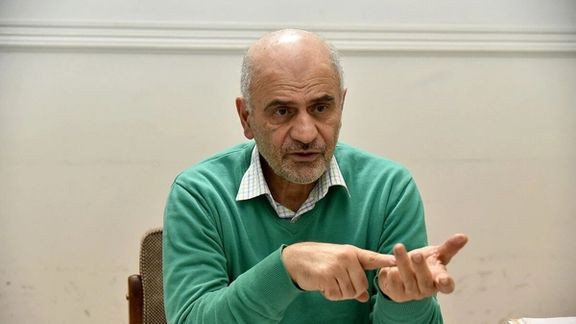
Iran’s oil exports dropped from a high of around two million barrels per day to as low as 300,000 in 2019-2020 after the United States withdrew from the JCPOA nuclear deal and imposed ‘maximum pressure’ sanctions.
The seminar where Momeni spoke dealt with oligarchical corruption in Iran, where 80 percent of the economy is controlled by governmental or religious entities, and political connections determine who is put in charge of large companies. The same principle of insider influence peddling works in domestic and international trade. Well-connected individuals and groups compete for special government favors, permissions, and facilities to monopolize a given market or sector.
Momeni argued during his remarks that the government and parliament lack a rational and scientific approach to the economy, especially over fundamental budget issues.
"It means that we are currently experiencing the phenomenon where hundreds of times, under the banner of very good causes, very bad deeds have been committed, and later it becomes clear that a mixture of ignorance, corruption, and sinister motives have been behind these issues,” Momeni argued.
Building on his argument, the economist warned about a shady government plan approved this year to sell public properties to the so-called private sector. What the government says are private investors are mainly regime insiders with money and connections, who can buy up valuable land and other assets at below-market prices.
Critics see the hasty plan to sell off government properties and companies as a way of "plundering Iran’s resources in the course of liquidating the country’s national assets."
Conservative news website Alef quoted Ahmad Tavakkoli, the head of the Iranian NGO, Transparency and Justice Monitor, as saying in a September letter to lawmakers, the heads of the three powers of the government and the privatization board that the plan "should be totally rejected."
In the past 15 years, most of government privatization deals have proven to have been nothing more than gross cases of corruption that have come to light repeatedly, despite tough controls over the media.
Momeni even warned about a fate for Iran similar to the Soviet Union. "If you do not want to learn from Iran's experiences, at least you should look at the experience of the Soviet Union's collapse! In a government that claimed to be communist, there were mafias that controlled the informal economy."
Lack of economic freedom and competition in Iran is backed by multiple studies. Just recently, the Fraser Institute in its latest Economic Freedom of the World report, measured the extent to which a country's policies and institutions support economic freedom, with data from 2021 serving as the basis for the 2023 assessment.
With a paltry score of 4.53 out of ten, Iran shares the lowly position with Libya, outpacing only Yemen, Sudan, Syria, Zimbabwe, and Venezuela in terms of economic liberties. The other low-ranking countries all have “brotherly” ties with the Islamic Republic.
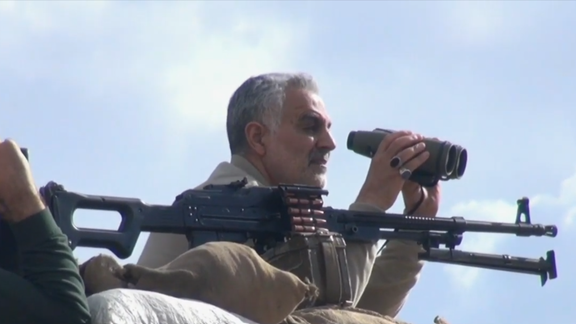
An Iranian lawmaker has raised the close ties between Mohammed Deif, Hamas' military chief, and former IRGC-Quds force commander Qassem Soleimani.
Esmail Kowsari, an ultraconservative and former IRGC general said that Deif, the chief of the Izz ad-Din al-Qassam Brigades, Hamas' military wing, and Soleimani "collaborated on the planning of numerous operations over the years”.
The Hamas assault on October 7 saw the Iran-backed proxy launch over 3,000 rockets at Israel before invading by land, air and sea in the deadliest single day for Jews since the Holocaust.
At least 1,400 mostly civilians were killed and at least 241 hostages taken to Gaza, including children and the elderly. In retaliation, Israel has since launched its most comprehensive invasion of Gaza in decades, resulting in the deaths of thousands of Palestinians as the Jewish state vows to rid the strip of Hamas.
Before his assassination by the US in 2020, Islamic Revolution Guards Corps commander Qassem Soleimani allegedly wrote to Deif that Tehran would continue supporting Palestine "despite all pressures and sanctions.” According to Hezbollah-affiliated al-Mayadeen news channel at the time, Soleimani said "the Islamic Republic of Iran will not abandon Palestine and the Palestinian people".
Deif, one of the architects of the horrific attacks, along with Yahya Sinwar, Hamas' ruler in the Gaza Strip, was added to the American list of Specially Designated Global Terrorists in 2015.
Iran has expressed its unwavering support for Hamas and condemned the US support of Israel. Iranian backed proxies have since launched dozens of attacks on US facilities in the Middle East, while simultaneously attacking Israel from its borders and beyond.
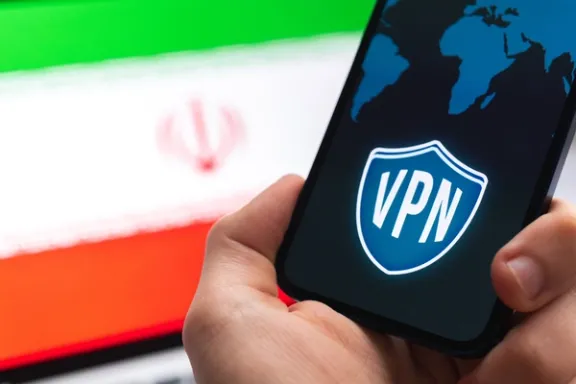
An Iranian MP claims there is a link between those lobbying for internet censorship and the companies producing censorship circumvention tools like VPNs.
Javad Nikbin, a member of the Cultural committee of the Iranian Parliament, made the connection, which also followed recent comments by another parliament member, Jalal Rashidi Kouchi, who estimated that the financial turnover of VPN sellers in Iran amounts to approximately 800 million to 1 billion dollars annually.
Additionally, another lawmaker, Mohammad Hassan Asafari, has previously alluded to the infiltration of government organizations by these VPN companies.
Since September 2022, Iran has witnessed an increase in censorship measures, often accompanied by internet shutdowns, in response to protests. It was anticipated that with the subsiding of these protests, popular messaging apps used by citizens would have their filters lifted. However, this did not occur.
Instead, the market for VPNs and circumvention tools designed to bypass filtering has thrived. According to parliament members, the income generated by the sellers has skyrocketed to hundreds of millions of dollars each year.
Reports from the Ministry of Communications in 2019 indicated that at least 28 domestic companies were engaged in the business of selling VPNs. Despite the awareness of judicial and security authorities regarding this matter, no action has been taken against these activities. The revelation of these connections between filtering advocates and VPN producers raises concerns about the implications and potential for further regulatory action in Iran's online space.
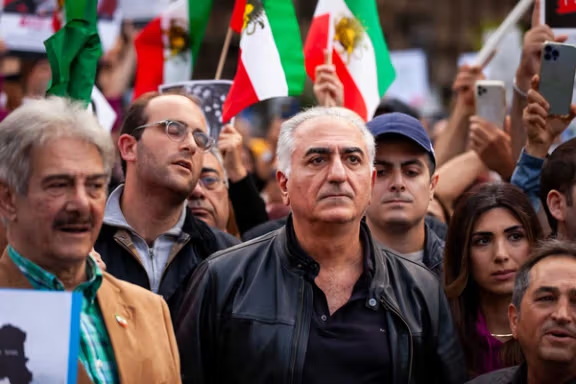
An Iranian Revolutionary Guard official revealed that prisoners expressed a desire for the return of the exiled prince Reza Pahlavi to Iran.
The surprising statement by Yadollah Javani, the political deputy of the IRGC came during an organizational meeting held on Tuesday night in East Azerbaijan province.
Javani raised concerns about the use of terms like "conquering the streets," "a new revolution," and other similar phrases by opposition groups.
Notably, this is the first instance of a senior official within the IRGC publicly acknowledging support for the Pahlavi regime and the desire for Reza Pahlavi's return to Iran during a public speech. The exiled prince is widely considered the most viable alternative to the Islamic regime and remains a positive figure on the world stage.
The regime's smear campaign against the Pahlavis aligns with its evolving tactics in the realm of 'soft warfare,' as coined by Iran's Supreme Leader Ali Khamenei. In recent times, Khamenei has employed this term to describe endeavors in the media and on social platforms, aimed at presenting alternative interpretations in an attempt to portray the regime more favorably than its actual nature.

A Pentagon official has told Iran International that Iran's proxies have attacked US forces in the Middle East 40 times since the Israel-Hamas war began last month.
The attacks have taken place in Iraq (22 times) and Syria (18 times), the official said.
On Monday, the Pentagon announced that in the past month, at least 46 American troops have been injured in attacks by Iran-backed militias, who seem to have grown impervious to recurring threats of retaliation by US officials.
And it’s not hard to see why.
Top Biden spokesman John Kirby confirmed Monday that there have been no additional strikes against Iran-backed proxies in the past couple of weeks despite continued attacks on bases housing American troops.
Kirby emphasized that none of the attacks on US forces have been “effective” and “in many cases have been thwarted,” implying that retaliation has been unnecessary.
But the view from the ground seems to be different.
"We're in the bunkers about every other day. These f**kers will eventually get lucky with one of these drones and kill a lot of people."
This is part of a conversation James Hasson, an attorney and an Afghanistan veteran, says he’s had with a “buddy” serving in the region.
"We aren't doing shit in response… we bombed a few empty shacks in Syria."
Hasson says the US troops find it hard to fathom the Biden administration's “total inertia in response to the threat level.” He quotes his friend as saying, it’s “sheer luck” that no one has been killed so far.
Biden critics say his lenient approach towards the Islamic Republic has emboldened not just the regime but its proxies in the region. Armed militant groups backed (and often guided) by the Islamic Republic are targeting US troops almost daily.
“If you want to strangle Iran, you cut off their oil,” said Republican Senator John Kennedy on Monday. “The Biden admin is choosing not to do that, and now they wonder why Iran’s proxies thought they could get away with attacking Israel and, by extension, America.”
Many US lawmakers have become more vocal about Biden’s Iran policy since October 7, when Hamas forces attacked border regions of Israel, killing at least 1,400 and taking at least 200 hostage.
In response, Israel has been bombarding targets in Gaza relentlessly and has moved in to take the northern part of the enclave, which is the main bastion of Hamas. Thousands of Palestinian have been killed and injured, although there are no reliable and independent numbers.
The attack on Israel has galvanized US lawmakers against the Islamic Republic, which many see as the brains and the hands behind Hamas. Several legislative measures have been introduced in the past few weeks with the sole or primary aim of punishing the Iranian regime.
One such bill is No Funds for Iranian Terrorism Act, introduced by Michael McCaul, Chairman of the House foreign affairs committee.
The bill imposes new sanctions on the “$6 billion of Iranian funds transferred to Qatar as part of the 2023 Hostage Deal” McCaul said in his statement.
“It will be irresponsible to allow another cent to flow to Iran. So that’s why my bill ensures the funds remain permanently off-limits to the Iranian regime.”
Another bill was introduced by Senators Marco Rubio and Jim Risch.
The End Iranian Terror (End IT) Act “requires the creation of a strategy to counter China’s evasion of sanctions imposed by the United States with respect to Iran,” according to a press release by the Senate Foreign Relations Committee.
“Iran has earned $80B in oil revenue, mostly from Chinese purchases. It uses these funds to supercharge its terrorist proxies, like Hamas,” Senator Risch wrote on his X account. “My bill directs the Biden Admin to enforce Iran oil sanctions & start taking action to starve the regime of resources.”
Senator Risch is also a cosponsor of the Stop Harboring Iranian Petroleum (SHIP) Act, which, according to a press release Monday, “would direct new sanctions on illicit purchases of Iranian oil and hold the regime’s enablers accountable.”
Reports emerged Monday that the Biden administration has sent strong messages to Iran and Hezbollah via Turkey that the US will intervene immediately if they attack Israel.
The Pentagon announcement of 40 attacks on American forces in a month raises serious questions about the seriousness of these treats.